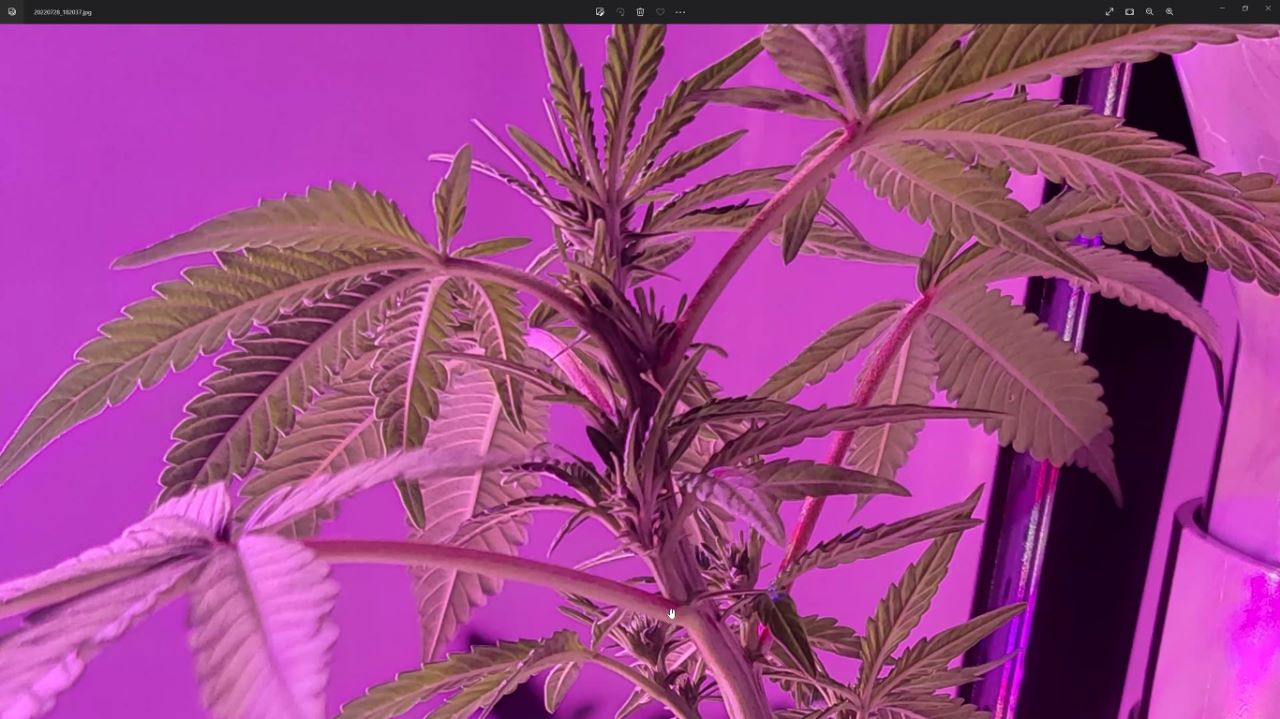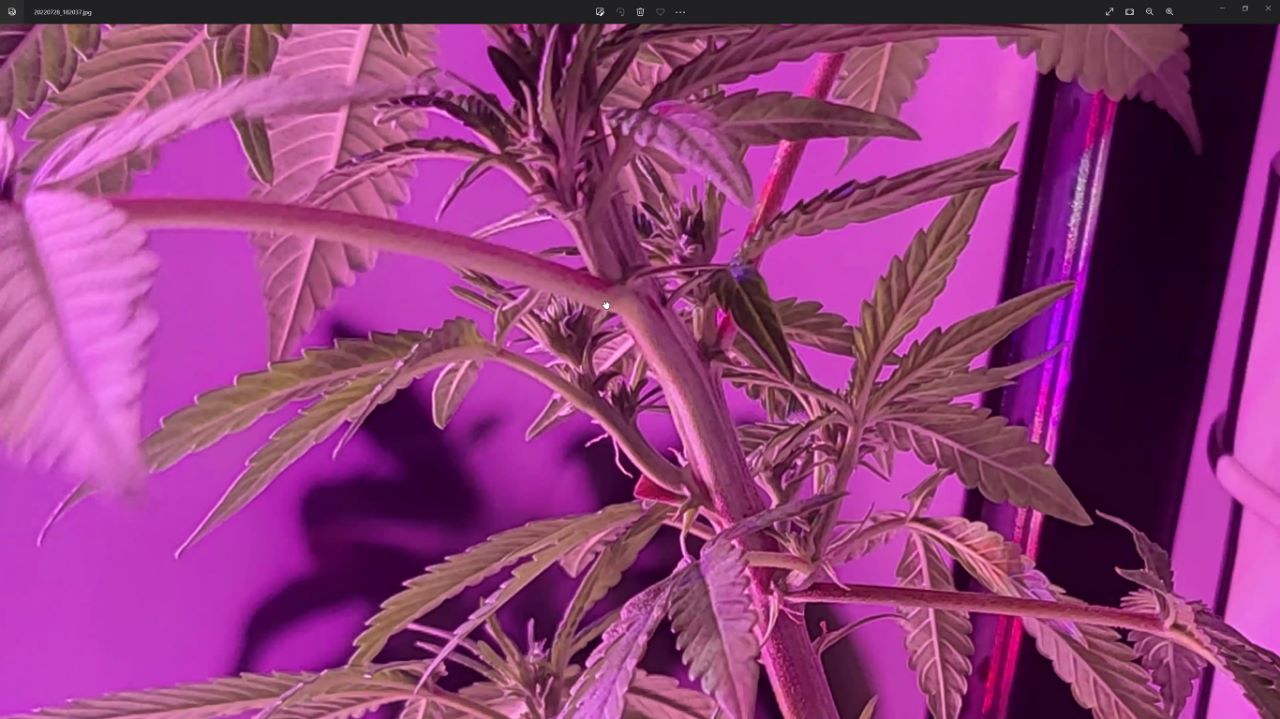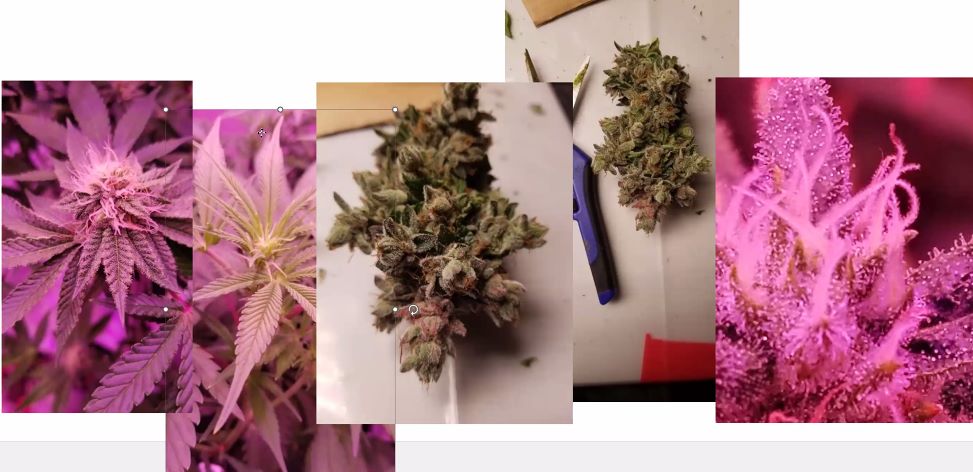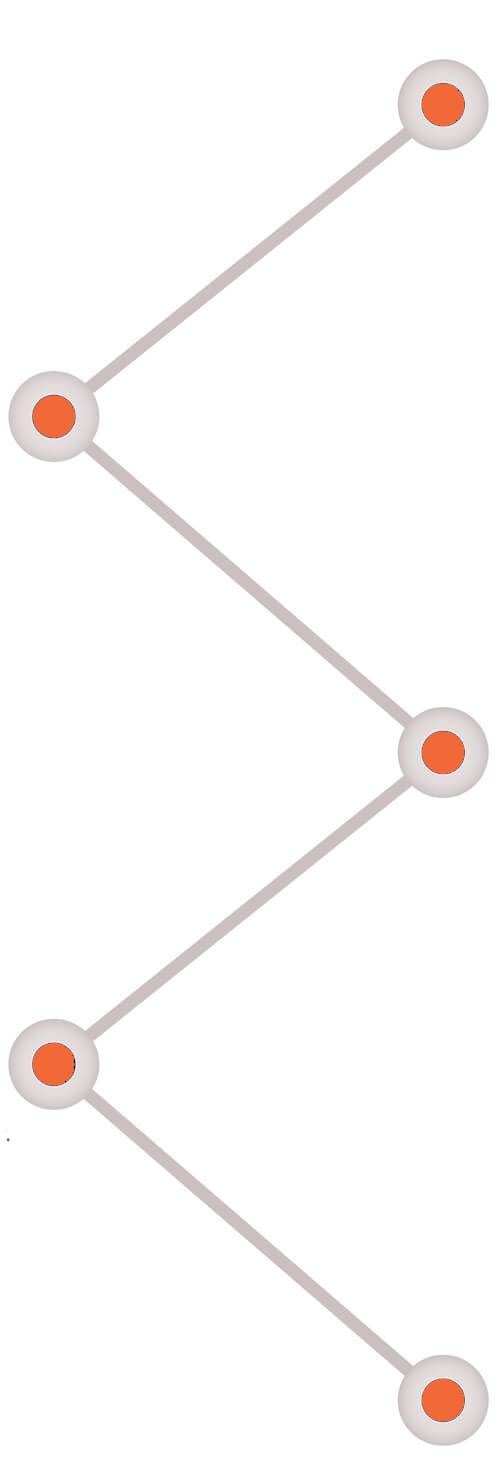Greenpro Africa developed a business model that will allow the investor to generate excellent profits over a long period, the Government to make additional GDP, support the Governments food security plan, and provide for large scale job creation and the social uplifting of education, health, and nutrition supply for the nearby communities.
The business model is based around the creation of an "Anchor Business Unit" that delivers good profit. These profits will allow for a certain agreed percentage to be allocated to a fund to manage social development activities and programs for the community. A dedicated social development team will interact with the community leaders to identify various priority social development programs for them.
On this basis the community is uplifted, they will accept the project in totality and make it their own Once the project is accepted by the community leaders and the whole community, it will be largely protected against vandalism and theft. It can be seen as a rural community loyalty plan.
The community will also view the project as a wealth generator for the community with the large-scale job opportunities created. With the newly developed community skills and infrastructures, wealth is soon visible in the community, and food is regularly available. This is the "SMART Sustainable Farming Village" with healthy kids, happy communities, and socially developed community members that got successfully established.
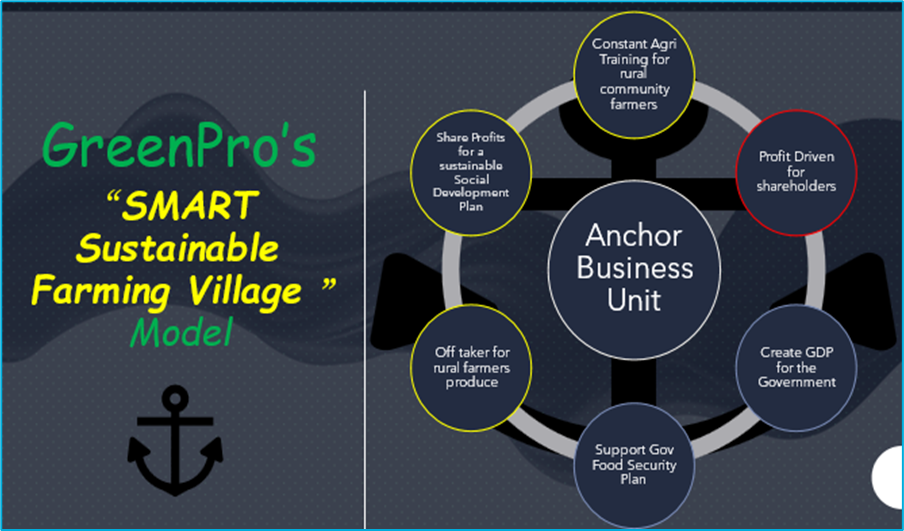
Greenpro Africa is one of the most experienced vertical growing expert companies in Southern Africa to design, install, maintain, and operate horticulture solutions growing vertically in a controlled environment.
Vertical growing hydroponics is the cultivation of crops in vertical stacked piping structures with the constant recycle of water including nutrients for the plants.
Various horticulture vertical growing solutions can be designed to cater for different food types and volumes. Such systems can be designed for restaurants, hotel rooftops, commercial farming, and specialized living apartments in high rise buildings.
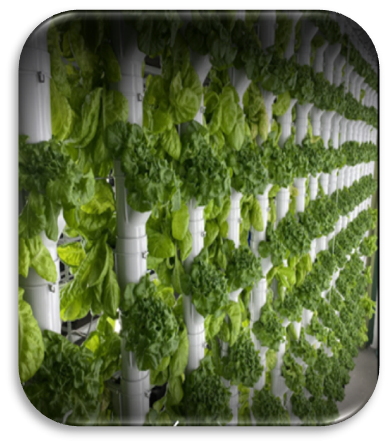
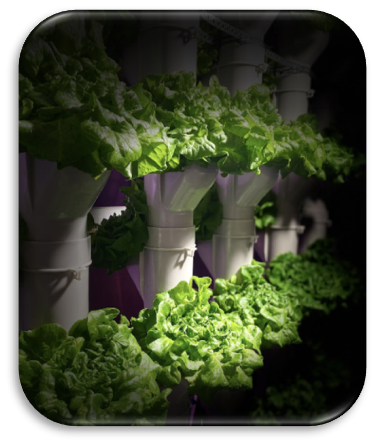
The advantages of vertical hydroponic growing are:
Year-Round Crop production, Maximum use of Space, Lower energy usage, Lower water usage, Lower Labour Costs, More Sustainable than Soil Farming, Less Resource Waste, Organic growth, Perfect plants can be produced. The typical vegetables such as lettuce, spinach, peppers, tomatoes strawberries, cucumbers, mini pumpkins, and kale can be successfully produce in vertical growing structures.
Greenpro Africa is the distribution partner of GROWPIPES, a Swedish manufacturer of quality vertical piping systems. GROWPIPES vertical growing piping structures is a world-wide patented solution and long-lasting features. It is also an affiliated partner of the Association of Vertical Farming (AVF) worldwide and is involved with European universities that develop new vegetable cultivars for vertical growing systems.
Illustration: GROWPIPES Vertical Growing building block
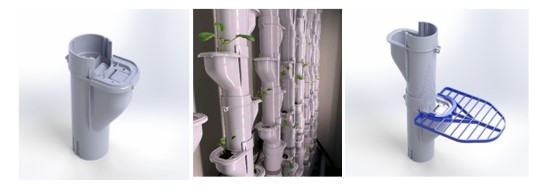
Illustration: Setting up of a Vertical Growing System Greenhouse

Illustration: Healthy plants that grow in a Vertical Growing Environment
 1
1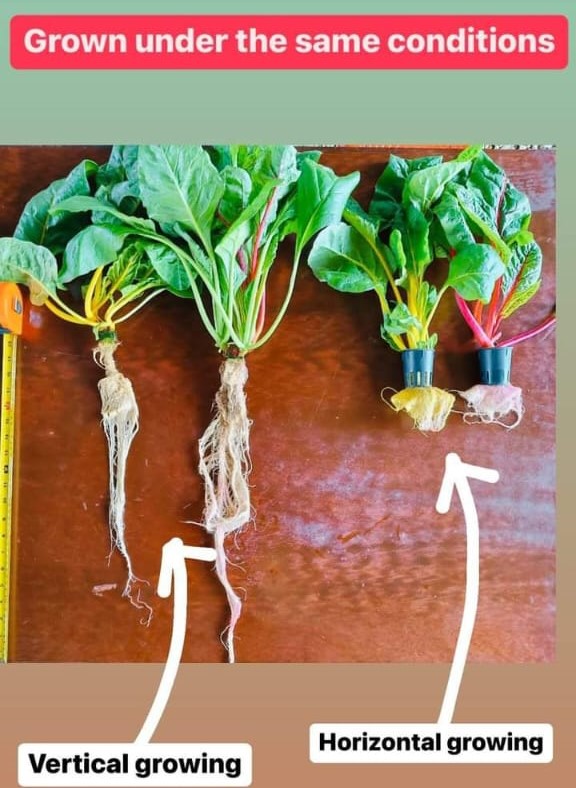
With the Growpipes system it is easy to maximize any given cultivation area both indoors and outdoors.
The Greenpro Africa solution
A closed and circular system.
Easy to assemble.
Cost-effective.
Leakage-free
Surface-efficient solution.
Easy to clean.
Guarantees that every plant receives water & nutrition.
Designed to withstand a cultivation height of 6m PVC free.
Greenpro Africa and Growpipes will contribute to a better and greener future by providing a hydroponic plant system that will help to transform vertical farming from a high-end product to a more accessible and sustainable offer for the many people.
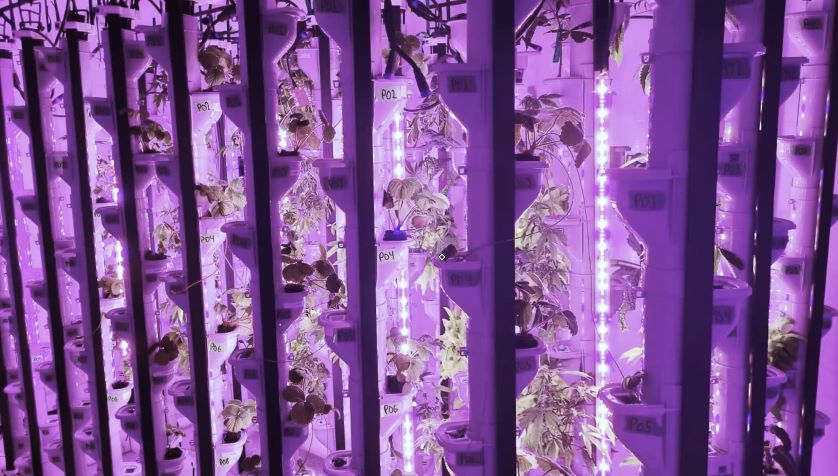
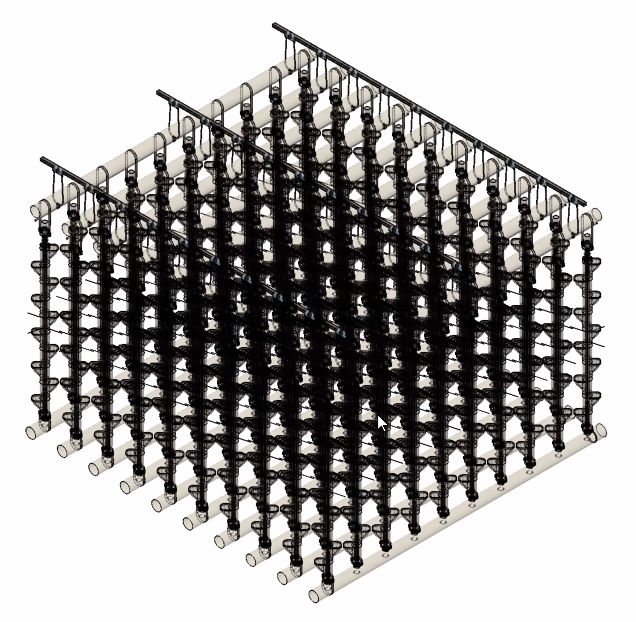
Greenpro Africa developed its own hydroponic fodder sprout system for animal feeds. Such feeds are supplied to cattle, goat, horse, wildlife, rabbit, chicken and sheep, produced in a closed, controlled system that can produce feed all year-round.
The technology is important for farmers due to shortage of green fodder in most of the Middle East, African and Asian countries and during drought. To meet this increasing demand for green fodder, one of the alternatives is hydroponic fodder production to supplement the inadequate pasture resources.
Today, hydroponics is mostly used in harsh climates such as desert, areas with poor soil or in urban areas where high land costs have driven out traditional agriculture. Hydroponic fodder production is probably bes-suited to semi-arid, arid and drought-prone regions of the world, suffering from chronic water shortages or in areas where irrigation infrastructure does not exist, and electricity is a scarce resource.
The Greenpro Africa controlled grow rooms consist of LED lights, internal automated irrigation system, specialized racks to grow fodder in, humidity controller, and external cool room to house the fodder. The seed grows into full grown fodder to be fed to the animals within 7-days.
Advantages of Hydroponic fodder feed systems for animals:
Sprouts in animal diets have proven to increase Omega-3 levels. This applies to meat, milk and eggs. When the animals are healthier the benefits are passed along to humans.
ENVIRONMENT - Growing sprouts uses less than 1% of the water and electricity required for standard forage production. Even in times of severe drought you can have fresh green feed. There's no fertilizer used, no pesticides and no soil needed.
FARMLAND SAVING - Vast savings can be achieved when it comes to farmland. Up to 100 sheep can be held on a small 2-Ha piece of land.
Sprouts (also known as "fodder" when used for animals) are economical to produce compared to other traditional animal feed.
Due to the high moisture content (80-85%) sprouts can improve hydration in the animals.
Living sprouts are extremely high in nutrients needed by animals. In dairy rations, sprouts generally show an increase in milk fats and other components. The weights of weaned calves improve drastically when sprouts are incorporated. Hydroponic fodder has more nutrients than traditional fodder, dry food or grain. It contains high carbohydrates, minerals and vitamins.
Compared to traditional fodder, which often needs months to grow, hydroponic fodder can grow in just one week 7-days..
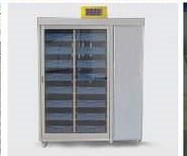
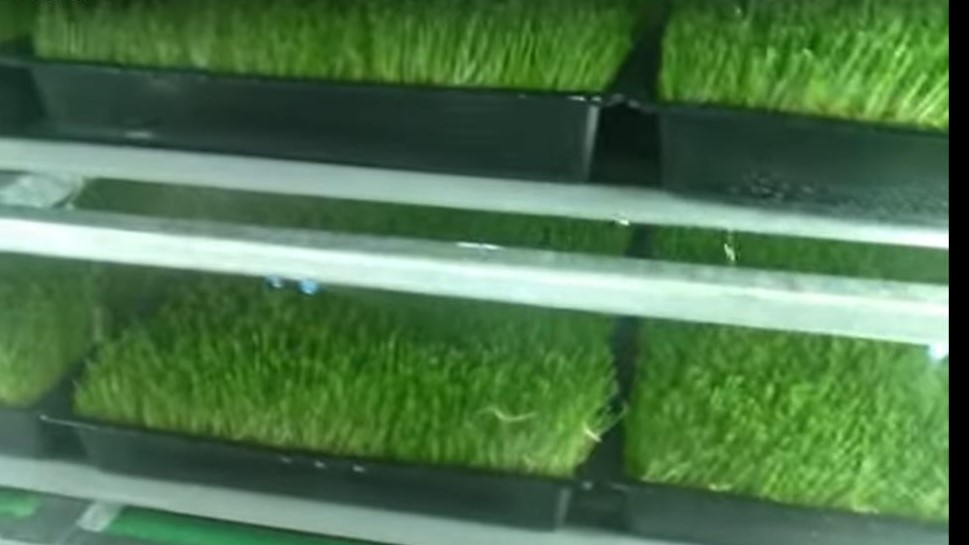
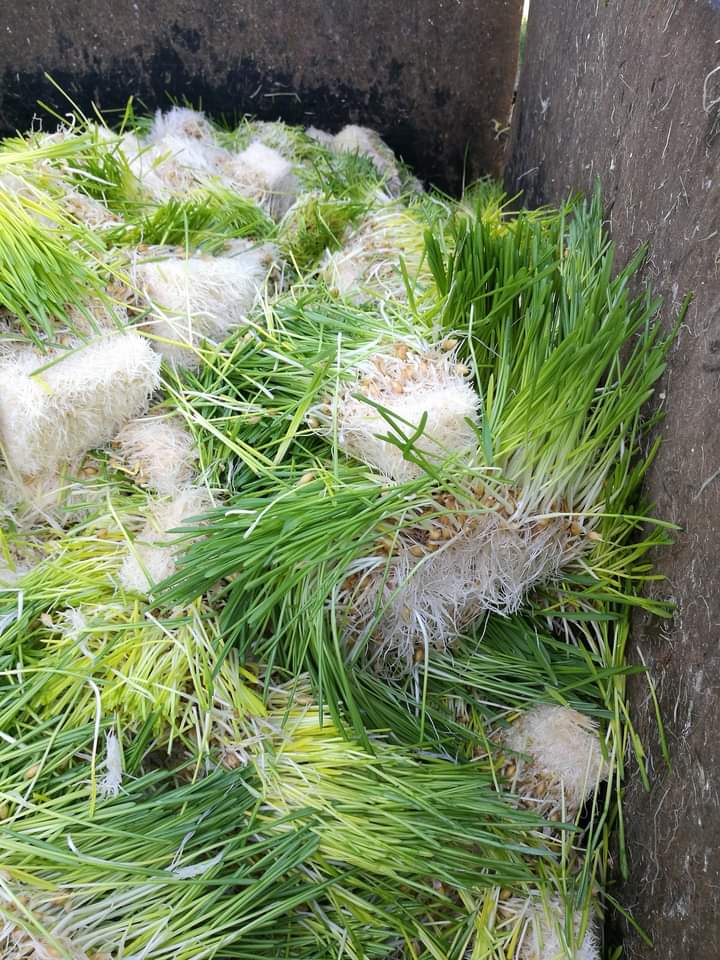
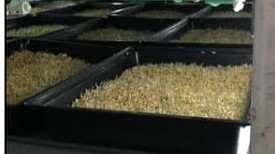
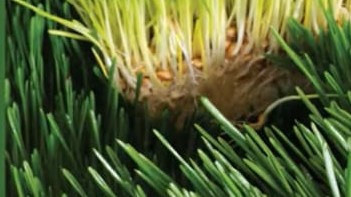
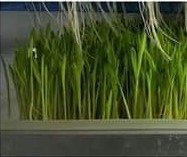
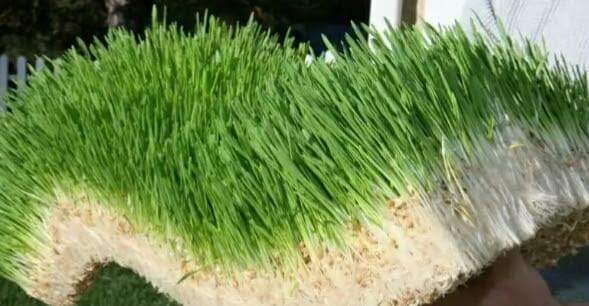
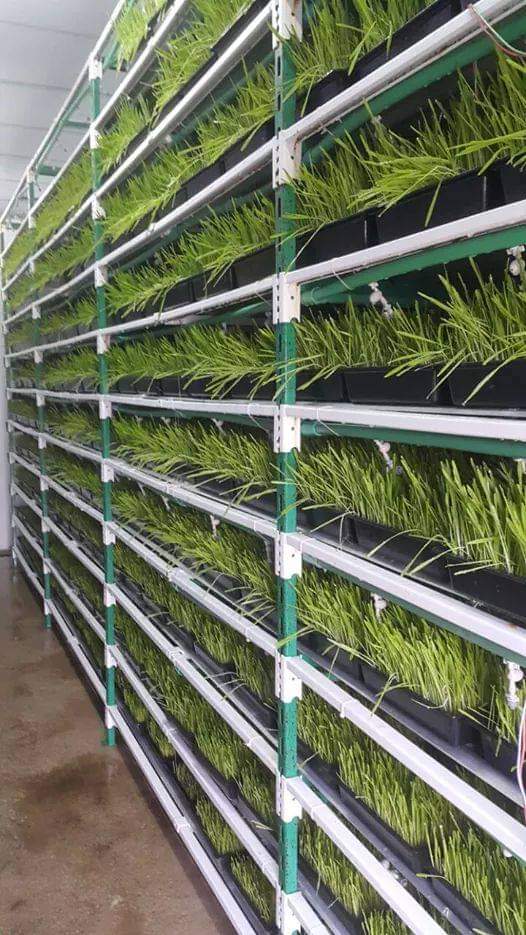
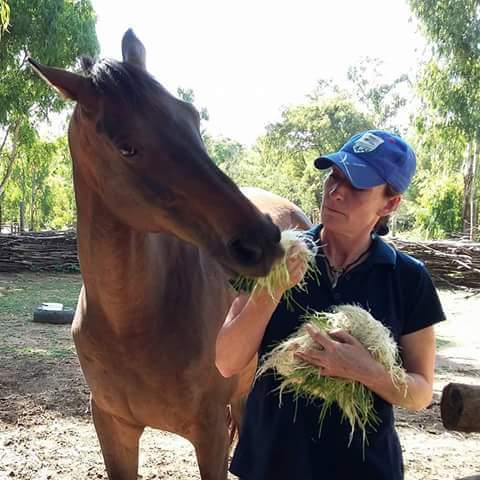
It is important to note that the typical animal feed entails two thirds of the feed being Sprout Fodder, and that one third of the feed by weight, must be roughage feed, which now can be of a low quality.
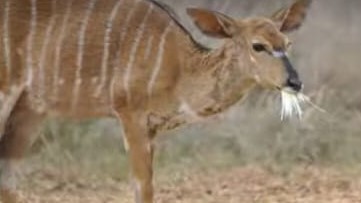
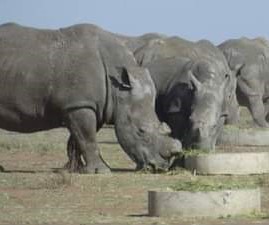
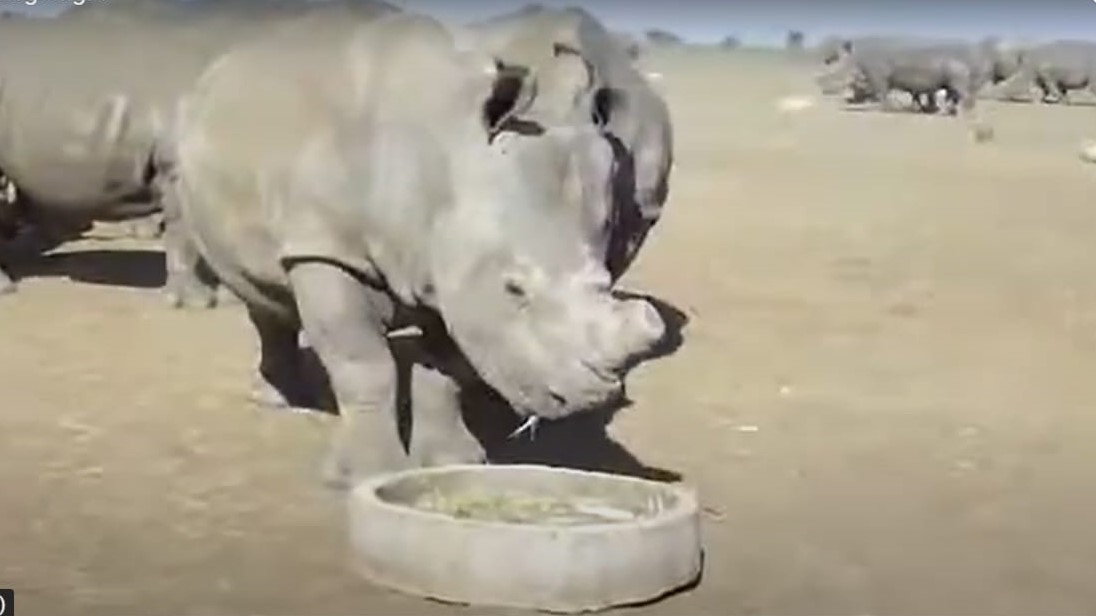
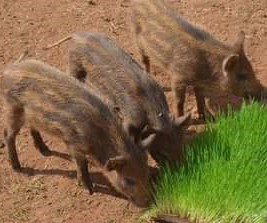
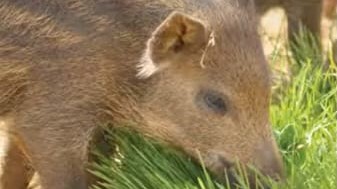
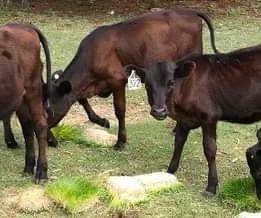
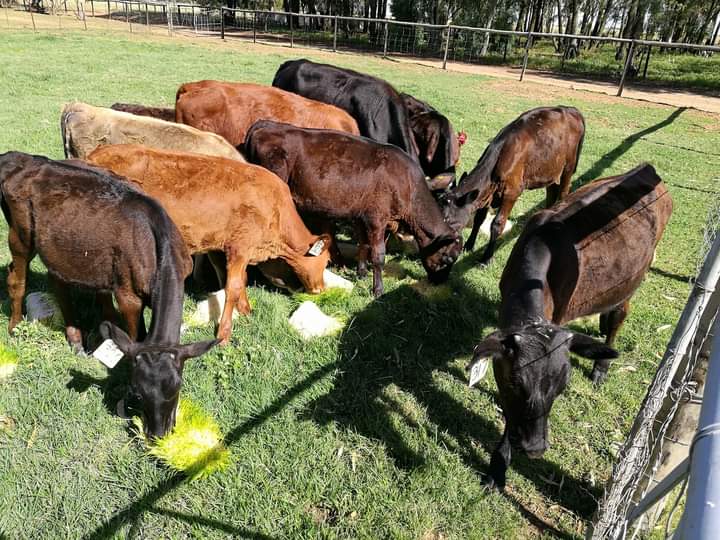
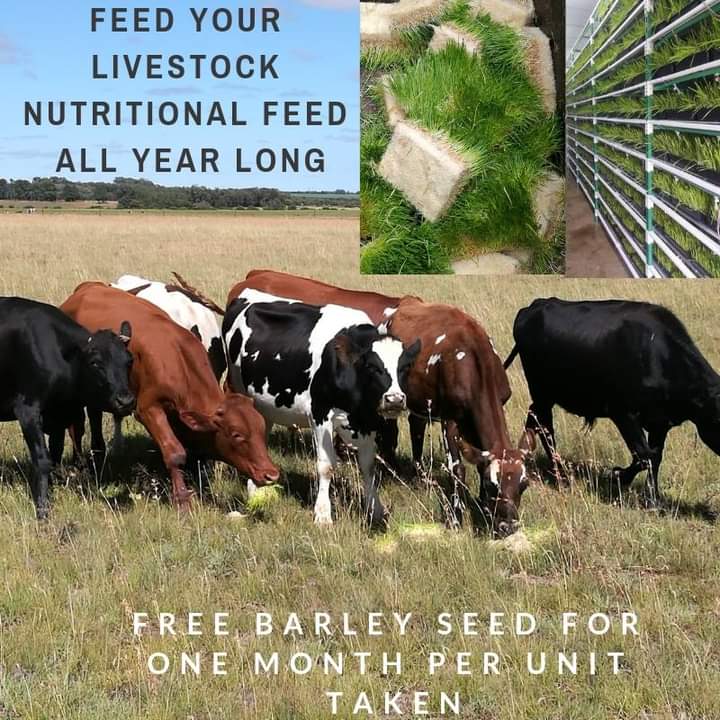
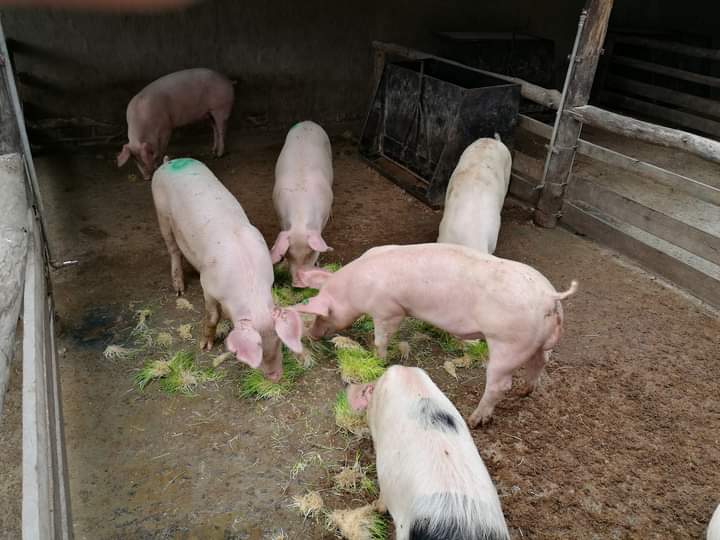
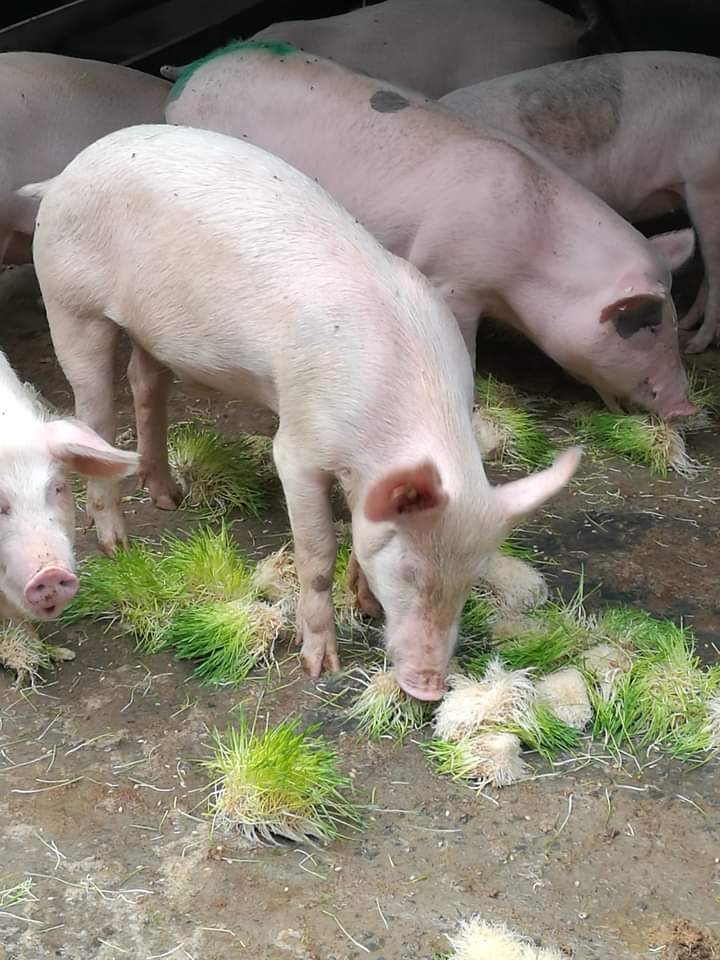
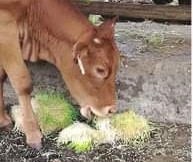
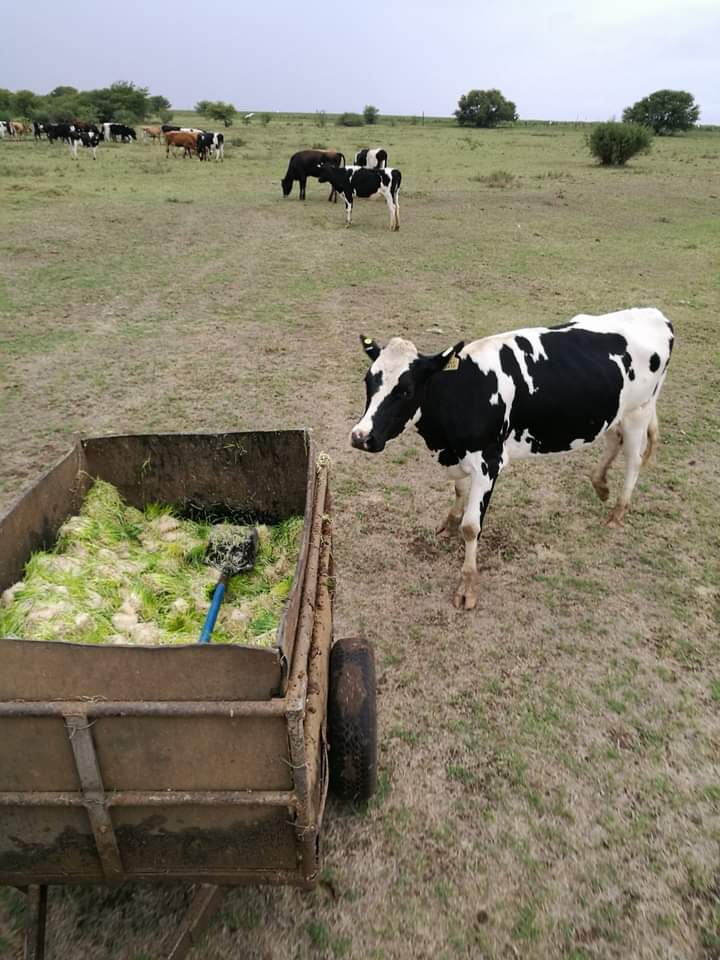
Greenpro Africa is following Regenerative Farming Methods because it focuses on the farms soil health which is the most important asset of any farmer. Commercial farming requires massive amounts of water, land, and unless it's an all-organic farm, many types f pesticides are also required.
Crop rotation and the minimum disturbance of the soil to promote soil health, as it also incorporates the use of cover crops, compost teas, compost, and manure (to avoid using synthetic fertilizers), pesticides and genetically modified crops. It is a much cleaner farming method, to confiscate more of the planet's carbo, which Greenpro Africa believes will help to curb global warming.
Greenpro Africa understands that farmlands or the soil is effectively the basis of any farm. Managing the carbon, Water and energy cycles of the farm, and treating the soil organically, with natural products and less human disturbance, are keys to use the soil, with excellent yields and quality.
Below the water, carbon and energy cycles.



One particularly effective practice from regenerative agriculture is non tilling. Essentially, instead of plowing or using heavy machinery, leaving the soil alone will let it create more organic matter and bind more CO2 than it would with human disturbance.
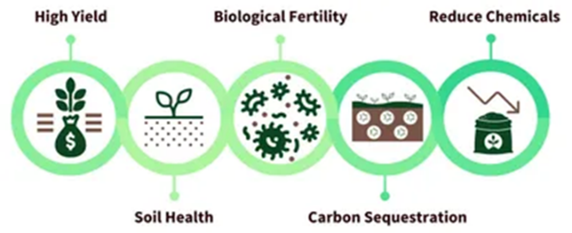
The benefits of regenerative agriculture are basically endless, as it reduces waste, binds CO2 in the soil, and it increases soil fertility organically and restores the critical soil bacteria population. It also improves bio-balance and associated plant resilience in the root zone, serves as a synergist to improve nitrogen fixation, and aggregate soil and prevent erosion.
No-till practice means that the yield is harvested from the land without any tilling of the soil thereafter. The previous plant stems, roots and leaves are left in and on top of the soil to cover the soil from heat and to keep the soil moist for natural soil biodiversity to thrive.
Greenpro Africa experienced the implementation of regenerative agriculture principles to reduce the farmers inputs, especially diesel, while producing better yields than what the farmers would have produced if they used conventional farming practices. The practice is followed by commercial farmers in South Africa with excellent end results. NVIRONMENT - Growing sprouts uses less than 1% of the water and electricity required for standard forage production. Even in times of severe drought you can have fresh green feed. There's no fertilizer used, no pesticides and no soil needed.
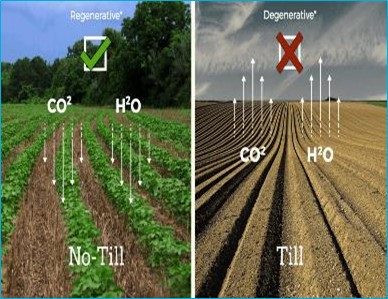
At the Greenpro Africa, we are firm believer that current evidence supports view that Holistic Management is the only way to re-establish grasslands and bushveld to its former glory to feed our animals again.
Below are typical examples of land restored through Holistic Management principles.

Essentially, Holistic Planned Grazing is a type of adaptively managed, time-controlled rotational grazing method for animals. The time that animals spend in any camp is based on a grazing plan, as well as on actual forage offtake (usually 50% to 70%). The number of days before animals return to a camp is based on plant recovery of biomass, depending on rainfall in the area and season.
If the livestock aren't managed properly the vegetation and soil will respond negatively.
Some of the underlying principles and advantages of high stock density grazing:
- A herd of animals are restricted to a small paddock to consume almost all the available plan material, and trample the remaining plants, and mix it with urine and dung.
- Dung, urine and grazing distribution is evenly spread throughout the paddock.
- Animals tend to graze a greater portion of the available plants and graze the paddock more evenly.
- Animals move frequently into fresh paddocks, which stimulates the vegetation and soil giving it a more consistent level of nutrition.
- Stronger plant communities are developed, providing better nutrition to the animals.
- Animal quality is greater improved.
- The soil will produce more food per hectare.
- The process prevent desertification, restores fountains and streams, prevents water shortage and soil erosion
Moveable or portable electric fences are used to crowd the animals to feed in a demarcated paddock to create the most effective results for the grassland to respond to. Crowded animals feeding camps need enough water via an available water distribution for animals.
It is proven that holistic management of animals feeding can increase the animal stock holding of the farm by 60% to 100%. This obviously means more food and profit per hectare.
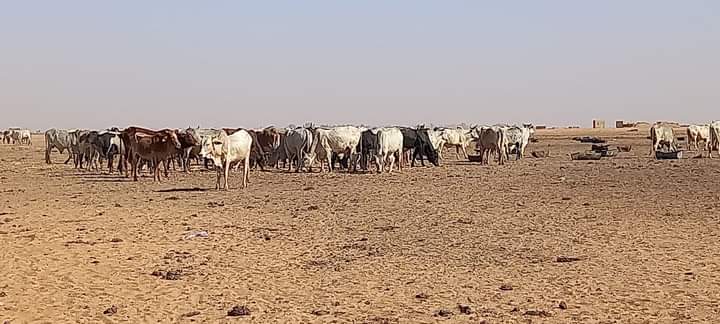
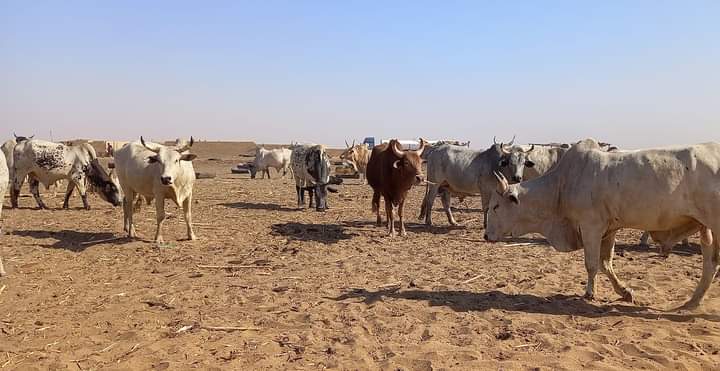
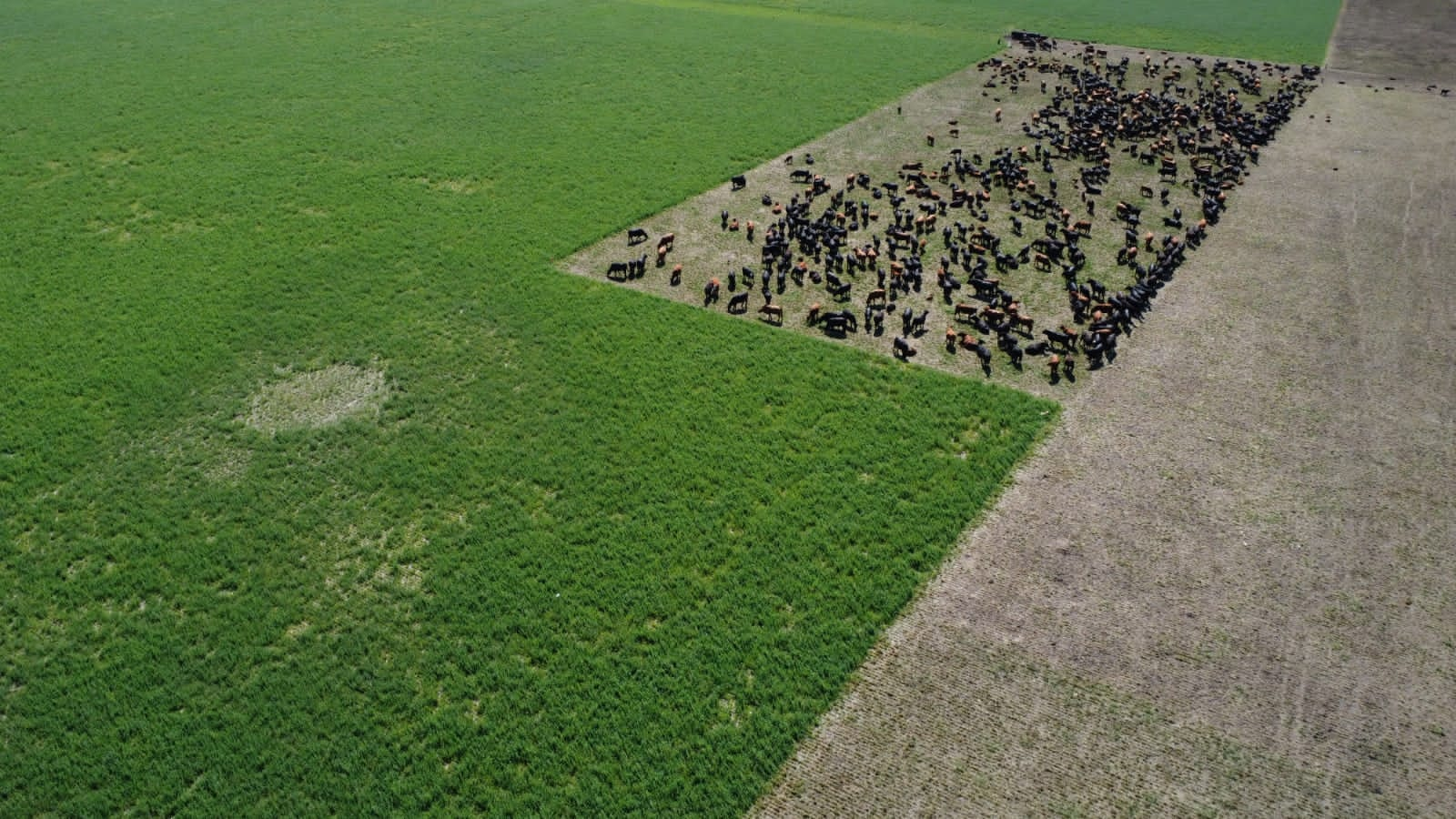
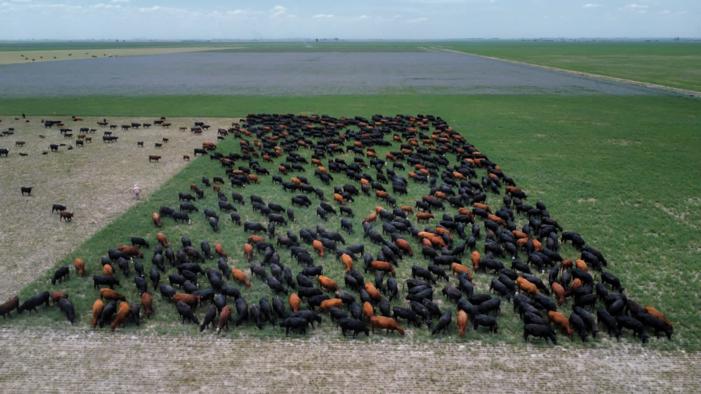
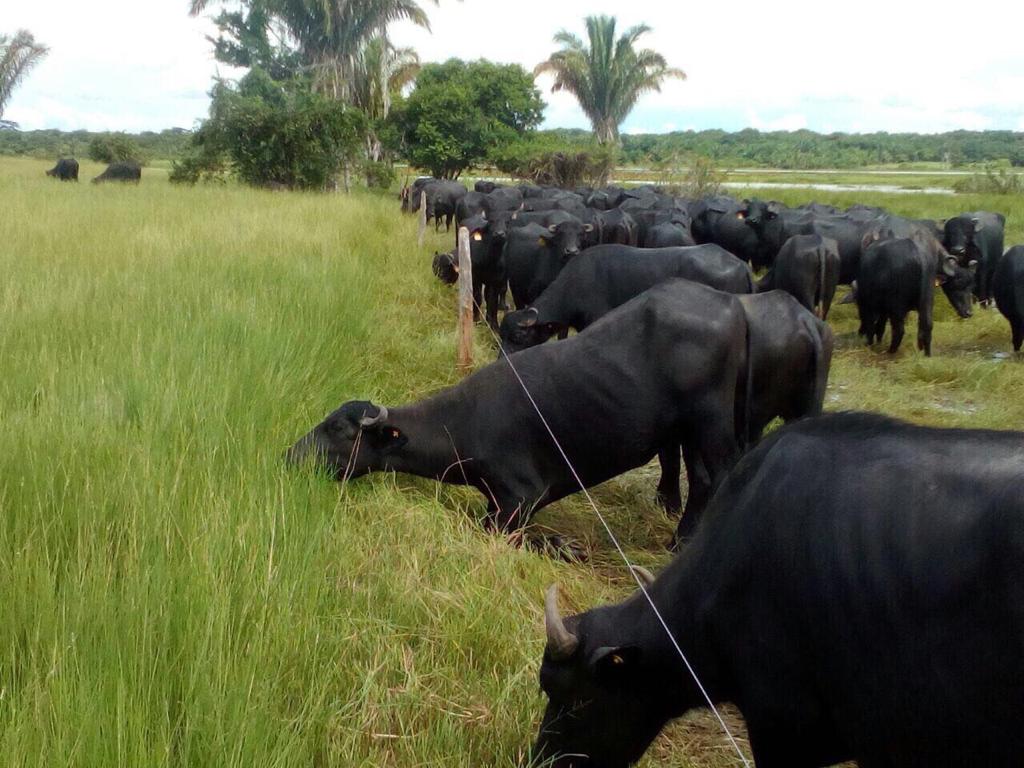
Greenpro Africa positioned itself to provide complete Indoors vertical growing farms and extraction facilities for medical cannabis. Greenpro Africa not only do the technical and process engineering procedures of commercial in-house medicinal cannabis growing, but also develop the complete business plan for our clients to allow them to acquire the license as well as funding for the project.
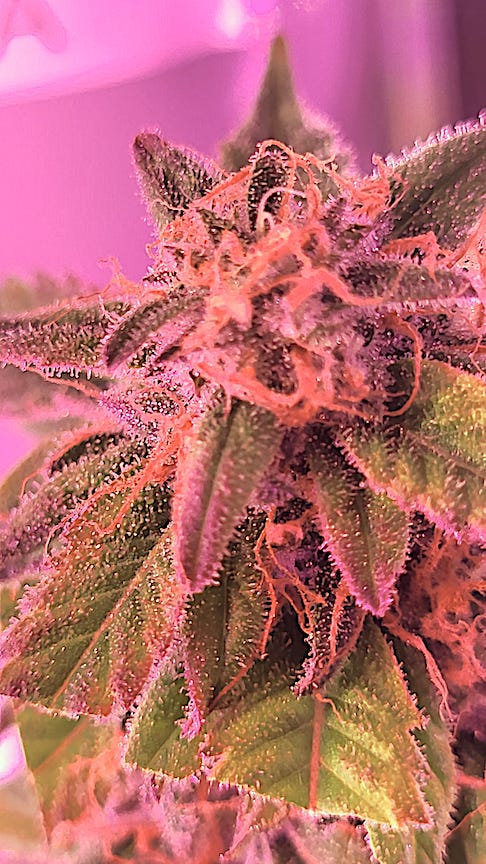
Greenpro Africa's unique skills allow them to design, construct and operate best-of-breed controlled environment hydroponic farms and to integrate the most efficient and cost-effective medicinal cannabis growing practices for maximum yield.
Greenpro Africa evaluated and tested various in-house controlled environment technologies across the globe and identified technical partners that best fit the Greenpro Africa business and technical turn-key-solutions design.
electrical engineering tea has many years of design, installation, commissioning and maintenance of various green or alternative energy solutions under their belt.
